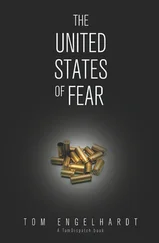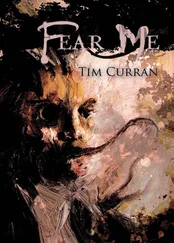“You’ll do no such thing,” I said. “I don’t believe any of this. You’ll keep a lid on yourself until I’ve spoken with both of them.”
“The devil I will.”
“You will,” I said, “or you’ll find another troupe to perform with.”
“That won’t be difficult, Douglass.”
“Won’t it?” I said, nearly beside myself. I was about to cross a line into some untenable escalation with him, and one hour before curtain was no time for this. So I swallowed my anger and said, “Michael, please let us get on with the show, and we will sort things out afterward.” Burke had arrived, and he caught my eye with a quizzical glance. I motioned him away.
“I will not appear onstage with that coon,” Eagan said.
“You will not need to. Go prepare, and let me handle this.”
So Henry knew he was being hunted. Perhaps he had already been caught. He might have left the city. Anything at all could have been true. Each scenario and its opposite seemed equally plausible. I had heard nothing back from Richards, nor from the two others to whom I had sent last-minute notes. So I sketched out a revised order for the second half, using the template of one of our weeknight shows, which did not feature Henry. I could not believe the story about showing up at Rose’s. I was torn between pity for him and anger, at him and at myself. The damage he caused was mounting up.
Powell and Mulligan arrived in their turn. By half past six o’clock Henry had not shown up. I announced to the troupe that Henry was not going to appear, and I forestalled commentary by saying I would offer a full explanation afterward. I gave Eagan a significant look, which contained a command to keep his own counsel until I had straightened things out.
Mulligan took me by the arm. “James, I need to ask you something privately,” he said, steering me out the dressing room door.
“What is going on, James?” he said when we were out of earshot. “You seem haunted. Is everything all right?”
I looked at him, then, my associate of years, and I saw genuine concern in his eyes. “Let’s get through the evening, John,” I said.
“Is Henry all right?”
I told him, quickly and in brief, what I knew, and what Eagan had said. His expression conveyed so much more of sorrow than any other emotion that I wondered if he had guessed the truth long before I had.
“The poor fellow,” he said, when I had finished.
“There’s nothing to be done now,” I said.
The hour approached and we made our way to the stage, took our places. Gilman informed us that the house was nearly full. There would be disappointment, sharply expressed, when Demosthenes Jones failed to show, but we would carry on. We sat in our line, facing the curtain. At seven o’clock Gilman made his introductory announcement, and then I stomped my foot four times and the theater and its contents were once again severed from their moorings and we floated away.
The evening was warm, and the crowd spilled onto the sidewalk. He disliked crowds, and especially city crowds, and he waited outside until the performance was about to begin, savoring the last of the day’s light as it drained from the sky and turned the buildings blue and gray. He wore a heavy jacket, inside of which he kept his pistol, a weighted folding knife, and a small wad of banknotes. The warm evening and slight breeze licked around the edges of his mood. All the Romes that rise and fall. The city one big stage set. The pure land that once was there. Across the darkening street was a tavern, and he let himself think that he might stop in afterward and uncouple himself from the week’s preoccupations. But drink was poison to him, and he had lived with discipline for a long time. He liked it in the country, where people had their mind on fundamental things. Rain, crops, blood.
The inside of the theater was very busy, and Tull made his way to a seat through the pressing bodies, the tentative, groping others. Those who stood, absently, in place, taking up room and delaying his progress. He found a spot toward the back on the left, in a less-populated patch where he could have an unoccupied seat on either side. He did not enjoy the sustained proximity of other bodies, rowdy and unwashed. There was a small balcony overhead, but one never knew what one would find in the balcony. This theater was about the size of the Columbia in Richmond, which he had attended twice.
He removed his hat and kept it on the seat next to him to discourage company. It had been a long time since he had had a drink. There had been a period when he was a walking sponge, soaked and dripping whiskey all over the floor. He had wrung himself out, finally, hung himself in the sun to cure. The only time he ever felt the want of a drink was at times like these, in a city. The seats were filling. Someone standing in the center aisle was pointing to the seat next to him, inquiring if it was free. Tull waved him off.
He looked at the program. At the top of the second half were printed the words DEMOSTHENES JONES WILL APPEAR, with no further amplification. The curtains were closed. The house lights dimmed. A pair of men settled themselves in the seats immediately to Tull’s left, and proceeded to bring out a flask.
A master of ceremonies strode out onto the stage and quieted the crowd, or tried to; he made an elaborate announcement, and then the curtain rose on the so-called Virginia Harmonists, five men seated in the standard minstrel line. Behind them, an elaborate painted backdrop of a plantation scene: two figures in knee breeches and long-tailed jackets, and three women in bright-colored hoop skirts, watching two smiling Darkies dance. A carriage with a smiling driver. Tull, unlike most of the people in the theater, was fully conscious of the distorted nature of the scene. The lie subscribed to by master and citizen alike, to preserve the myth of their own virtue. They hired the likes of him to do the rough work, behind the curtain. The frustrations of the week collected around this thought, and he reminded himself that he would be leaving the next day. He would try to enjoy the performance.
The fiddler was very good. The banjo player — they called him “Bullfrog Johnson,” according to the program — was excellent. Tull was able to appreciate some of the finer points. He had seen minstrel shows in Richmond and, once, in Baltimore. He had learned some basic strokes on the banjo, which provided his sole purchase on beauty. There was a slave on the LaFontaine plantation near Appomattox, named Crito, who played both fiddle and banjo. He was a trustee, and came and went from LaFontaine more or less as he pleased. Every few weeks Crito would make the four-mile ride to Tull’s cabin on a Sunday and they would sit on Tull’s porch and play a few songs. Crito was a necessary figure for Tull, proof that the rest of his dark race was lazy and ignorant and dissolute by choice, not by the fact of their enslavement. They could be better if they wanted to.
The show went on. The two gallants on his left had prepared for their evening with a fair amount of whiskey, and they engaged in a dialogue about the presentation onstage, taking regular drinks from the flask and shouting at the performers.
“Dance, niggers!”
“Your trousers are too short!”
“Play that fiddle, Sam!”
Tull felt his irritation rising. Their remarks impinged upon his enjoyment of the presentation. Two useless characters who had probably never raised a callus from work.
“Have a drink?” The one next to him was offering him the flask. “Have a little fun why don’t you?” Tull turned his head to regard him, unsmiling, and saw the fellow note his turned eye. The one nearest him wore a velvet tie and had a scar on his chin. Longish hair in back. The other had a full beard and wore a waistcoat and had his shirt buttoned to his neck. Tull stared at them without speaking.
Читать дальше










